BIDDEFORD — Five seals waddled across Biddeford Pool beach Tuesday evening as the Marine Animal Rehabilitation Center said goodbye to its last group of sea animals before closing down.
A crowd of about 250 former volunteers, families and local residents oohed and aahed from a distance as the rehabilitated seal pups flipped and flopped into the ocean for the first time in months.
The seals were rescued and rehabilitated at the center after having been stranded on beaches, dehydrated or injured along the Maine coast.
The University of New England-run facility won’t be so lucky.
After rehabilitating more than 1,100 marine animals since 2001, including seals, sea turtles and porpoises, the center officially closed Tuesday.
“It’s heartbreaking, it’s devastating. I’m not only losing family, I’m losing a community. I’m losing a home,” said Margot Madden, 22, a former volunteer at the center and recent graduate of UNE. “There’s a huge hole in my heart that will never be whole.”
Late last month UNE, which has campuses in Portland and Biddeford, announced that it was closing the center because of a lack of funding and a need to put more resources into degree programs.
While students from the university often volunteered at the center through work study or other programs, it was not a part of the curriculum. With each seal costing around $3,000 to rehabilitate, the university had to put the funds elsewhere.
“This is the absolute worst time that this could’ve happened,” said Lynda Doughty, executive director of Marine Mammals of Maine, which has about 60 volunteers who deal with seal abandonment and sea animal strandings from Kittery to Rockland.
UNE’s facility was the only rehab center for sea animals in Maine, and Doughty said May and June were usually the center’s busiest months.
Early summer is when seals typically give birth, and they have to leave their pups on beaches to go find food. Mothers sometimes die in the process or – if people or dogs get too close to the pups – get scared and abandon the young seals.
“It is pretty hard. We worked together as a partnership for many years and it’s hard to see this program ending,” Doughty said of the Marine Animal Rehabilitation Center. She added that Marine Mammals of Maine “can’t do it without them.”
Doughty said Marine Mammals of Maine has been monitoring about 50 pups that have been stranded since early May and will try to bring them to rehabilitation centers in Buzzards Bay, Massachusetts, and the Mystic Aquarium in Connecticut.
“But there’s very limited funding and we’re at capacity for these animals,” Doughty said of her organization.
She said the Mystic Aquarium is full after a few seals were shipped there from Maine this week.
Most of the seal pups monitored by Marine Mammals of Maine would have gone to the UNE facility, Doughty said, but without the center her organization has had to watch the animals for longer. Seals that have been abandoned for a long time often have to be euthanized because they will die without a mother if humans cannot rescue them.
“We do this because we do care,” Doughty said. “Without a rehab center in the state of Maine, it really affects how we respond to these animals.”
More than 2,400 people signed an online petition seeking to keep the center from closing.
Counting down from three, the spectators on the beach cheered Tuesday evening as volunteers released three harp seals named Cedar, Birch and Babbidge from their crates. The seals waddled and flopped around the beach before sliding into the ocean.
Next came two gray seals named Stratton and Black Rock, who volunteers said were best friends. The seals were reluctant to leave the beach, hissing at the spectators and trying to sneak back into their crates. But the seals soon dived into the sea, as the volunteers embraced and shed tears, mourning the loss of both the pups and the center.
“Now is the time to celebrate all the good contributions we’ve made to the students of UNE and to the community,” said Anna Bass, a research assistant professor at UNE who worked at the center. “And then we must regroup and figure out what to do with the animals who can no longer be helped.”
Madden said Maine beach-goers who see stranded seals should stay at least 150 feet away and call the Marine Mammals of Maine hot line at (800) 532-9551.
Send questions/comments to the editors.

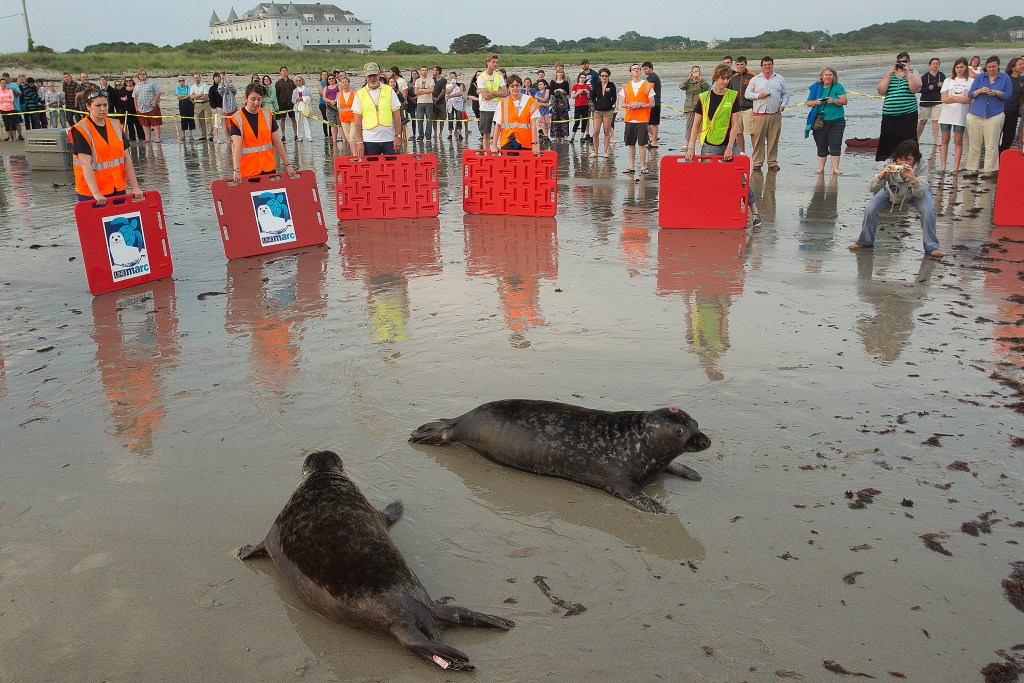
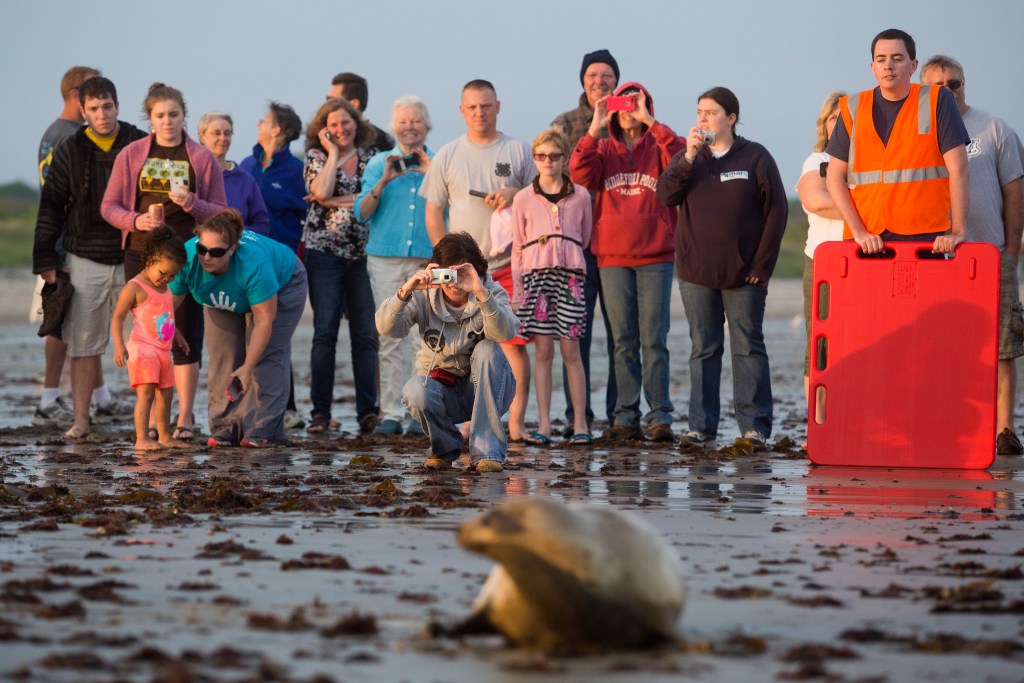
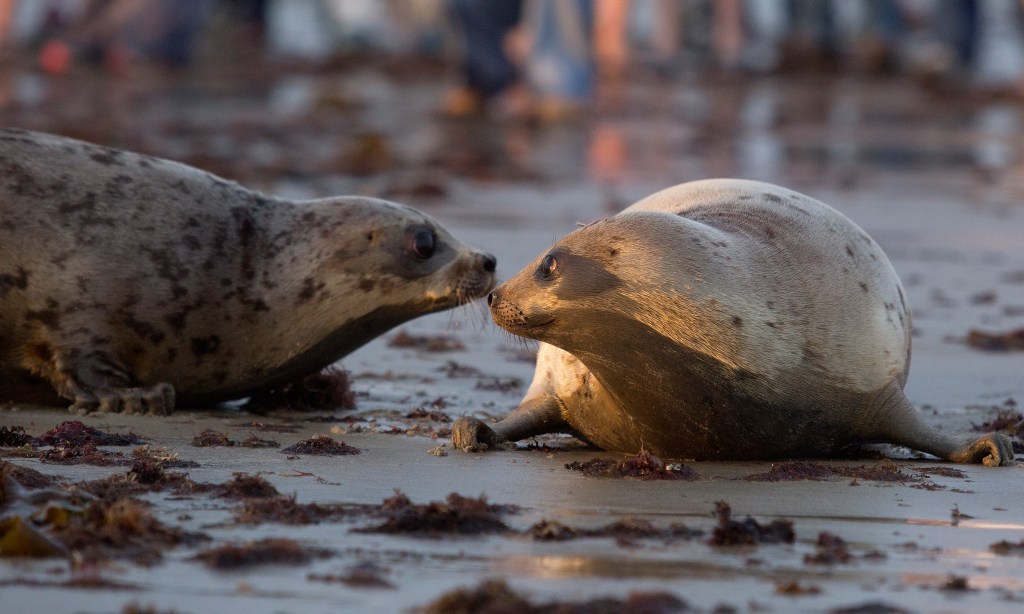
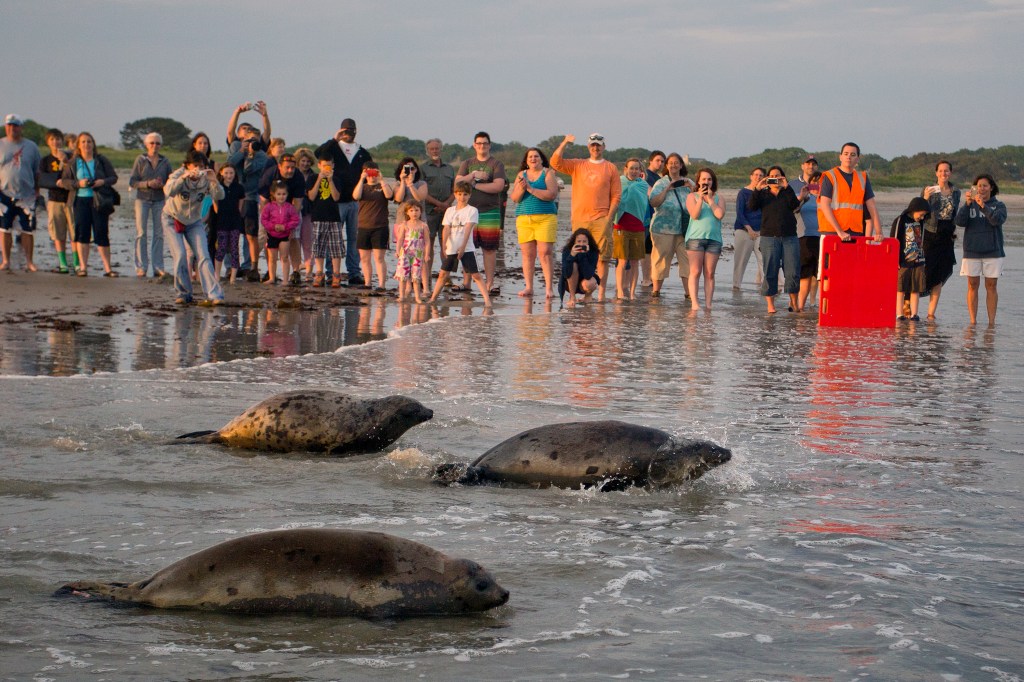
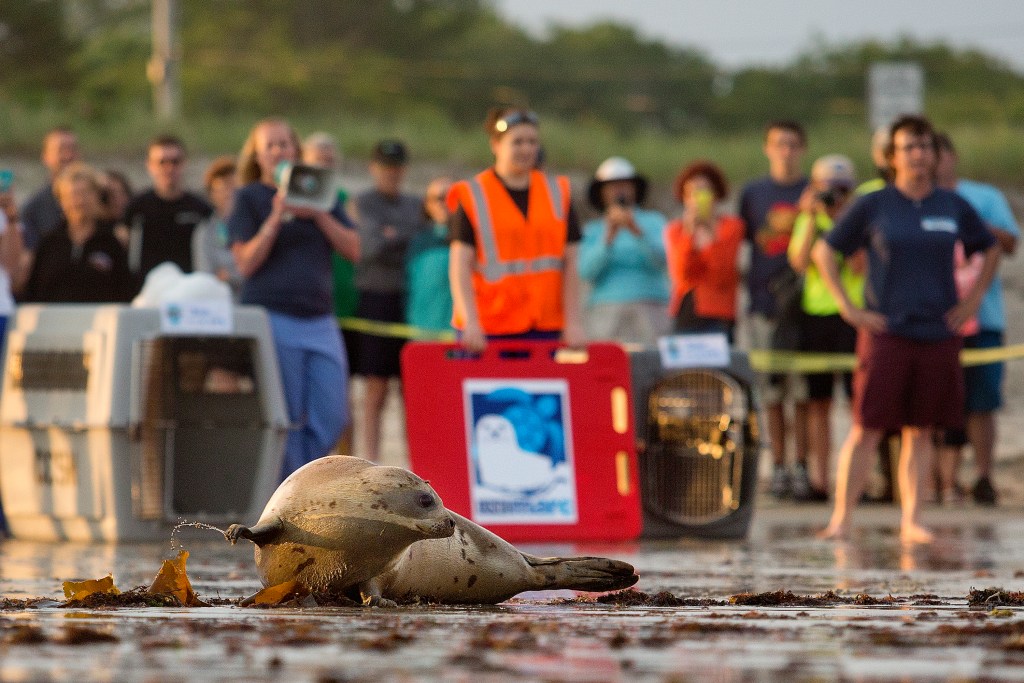
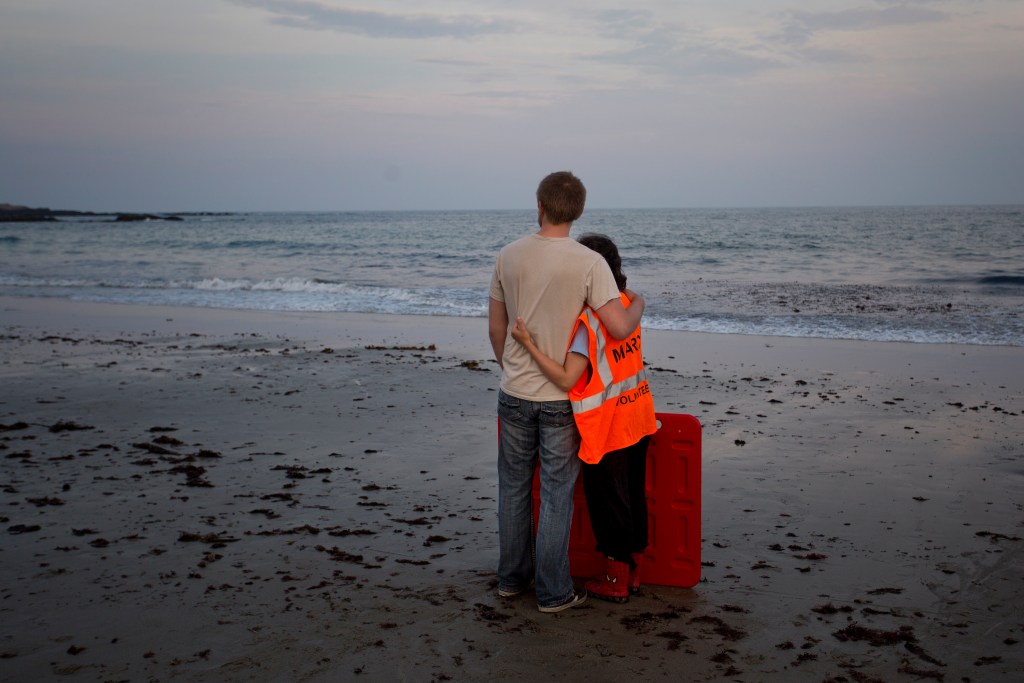
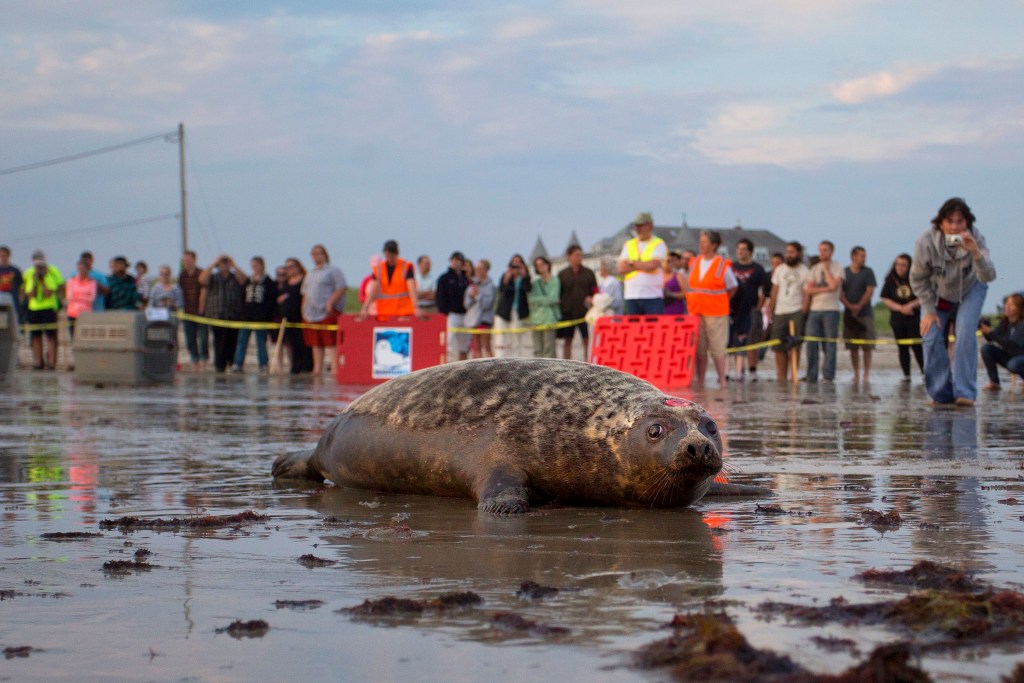

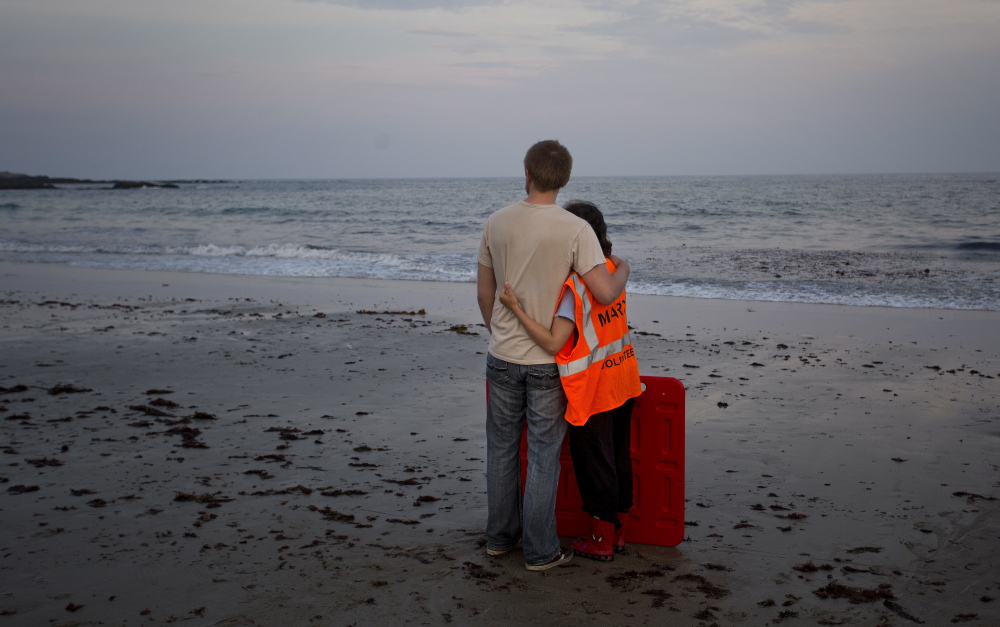
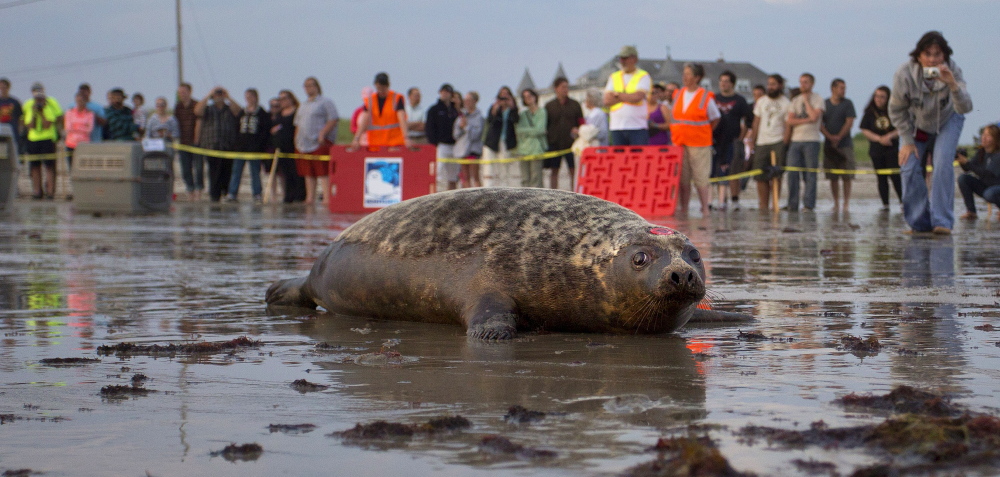

Success. Please wait for the page to reload. If the page does not reload within 5 seconds, please refresh the page.
Enter your email and password to access comments.
Hi, to comment on stories you must . This profile is in addition to your subscription and website login.
Already have a commenting profile? .
Invalid username/password.
Please check your email to confirm and complete your registration.
Only subscribers are eligible to post comments. Please subscribe or login first for digital access. Here’s why.
Use the form below to reset your password. When you've submitted your account email, we will send an email with a reset code.